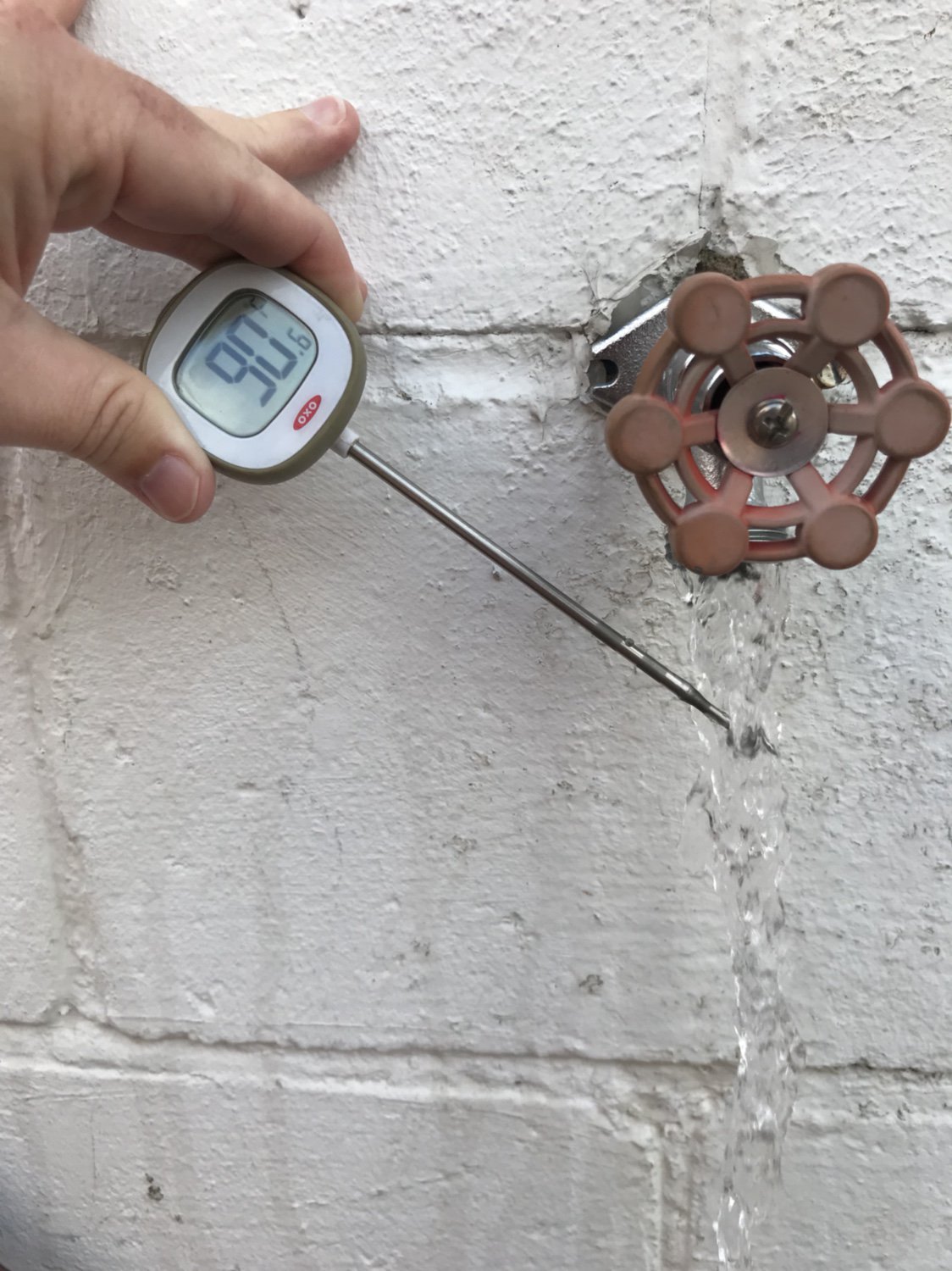Jeff B
Thanos was right
- Joined
- Dec 23, 2006
- Location
- Lincolnton N.C.
Do you have problems with the water freezing in the winter?
Do you have problems with the water freezing in the winter?
see,I'm with you on this. The water main at the street should have at least 3 feet of cover but even with 2 feet,it should still be in the upper 60s to low 70s even on the hottest days. I work in this crap all day and never had bath water come out of a main on me. It's allways been cool enough to dip and drink even during the hottest part of the summer. That temp should maintain through the service line,through the meter and to the building if you are using that much at one time.IIIIIII think you got something else going on there skippy. Is the water line coming into the building at a wall that is being cooked by sunlight or runs across the ceiling near the roof and getting heated up that way? Are you pulling water off the water heater somehow?Do you have problems with the water freezing in the winter?
see,I'm with you on this. The water main at the street should have at least 3 feet of cover but even with 2 feet,it should still be in the upper 60s to low 70s even on the hottest days. I work in this crap all day and never had bath water come out of a main on me. It's allways been cool enough to dip and drink even during the hottest part of the summer. That temp should maintain through the service line,through the meter and to the building if you are using that much at one time.IIIIIII think you got something else going on there skippy. Is the water line coming into the building at a wall that is being cooked by sunlight or runs across the ceiling near the roof and getting heated up that way? Are you pulling water off the water heater somehow?
I'd start investigating the actual cause of the heated water and then insulate it from that.
what town is your business in to where the watermains are only 12 to 14 inches deep?
It's benson, don't act surprisedwhat town is your business in to where the watermains are only 12 to 14 inches deep?

It's benson, don't act surprised
I would think that his biggest issue is the proximity to the water tower
well damn,I'm running through Benson 2 times tomorrow.I'll question our engineers about such stuff.


